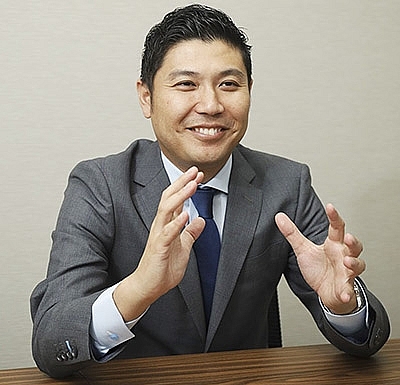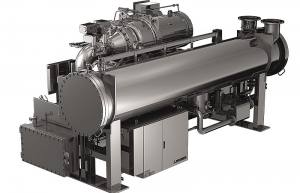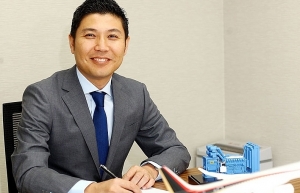Vietnam: a cornerstone of MHI Group’s Asia strategy
Could you shed some light on MHI's business strategy in Asia and Vietnam?
 |
| Jun Shirota |
MHI’s strategy in Asia, including Vietnam, is centred on our objective of channelling big thinking into solutions that can help the region progress and advance the lives of people in the countries where we operate. We are passionate about finding new, simpler, and more sustainable ways to power cities, improve infrastructure, innovate manufacturing practices, and connect people and businesses around the region with ever-increasing speed and efficiency. In Vietnam, MHI plans to focus on three sectors which we see as playing key roles in further solidifying national progress, namely industrial parks, airports, and urban development.
What are the opportunities for MHI in the fields of industrial parks and airports?
We see a great opportunity in helping Vietnamese industrial parks become smarter–more energy-efficient, cost-efficient, and environmental friendly. We can provide more efficient equipment to individual factories, or work with industrial parks themselves in the planning stage to provide common infrastructure, so their individual tenant factories don’t have to duplicate it.
One of the offerings is our end-to-end Energy Saving Solution, which attains reduced energy costs and improved reliability at a factory level. It uses advanced data visualisation, demand analysis, and simulation tools to determine granular electricity, heat, and water consumption patterns. Using the data generated from these sources, we can then install high-efficiency equipment and co-generation systems customised to the factory’s needs. For the airport sector, as MHI is the largest automated guideway transit supplier in the world, we hope to introduce some of our product line-up under this category which are suitable for airport settings. These include automated people mover systems which are composed of driverless trains that transport people from one area of the airport to another.
How does MHI plan to contribute to Vietnam’s sustainable urban development?
We want to introduce solutions that can tackle the challenges of urbanisation like traffic management and waste management. For traffic management, MHI has many intelligent transport systems that can help improve traffic flow and reduce accidents and emissions. MHI has previously worked with the Ministry of Transport on a demonstration project targeting the integration of expressway electronic toll collection (ETC) systems. We have also supplied 50,000 on-board ETC units and antennas for use at the toll gates of the Ho Chi Minh City-Dau Giay section of the North-South Expressway. Meanwhile, MHI’s waste-to-energy systems can help to meet Vietnam’s concurrent need for waste management, energy generation, and construction materials. The waste-to-energy systems enable the generation of electricity from the incineration of municipal solid waste. Using our proprietary technology “SMASH” (SMart ASH treatment system), the ash produced from the incineration can then be converted into material that can be mixed with cement for use in construction.
What is your plan to strengthen your presence in your core business areas, such as power generation, air conditioning, and logistics?
We believe that the power generation sector holds ample potential due to Vietnam’s rapid economic growth. Indeed, the country’s projected demand for electricity is set to outpace the current installed capacity soon. As such, we will continue our collaboration with companies like Electricity of Vietnam, PetroVietnam, and PV Power while exploring new partnerships with other organisations. One of our solutions for this sector is our air quality control systems, which can remove air pollutants from plant emissions. We also plan on helping meet Vietnam’s growing demand for air conditioning systems–whether for residential, commercial, or industrial purposes–which can be attributed to the country’s continuing urbanisation, and the increase in newly-built infrastructure and buildings. Furthermore, we see an opportunity to expand our logistics solutions business in Vietnam. As e-commerce
expands, companies in this sector increasingly need high-quality logistical equipment and systems. We hope to meet their demand with our solutions, including electric and internal combustion forklifts as well as various warehouse handling equipment.
What are the key factors that make MHI a reliable partner for growth?
MHI has a long history of being a global leader in engineering and manufacturing since its founding in 1884. We hold 31,783 patents globally that help us deliver innovative and integrated solutions across a wide range of industries--from commercial aviation and transportation to power plants and gas turbines, and from machinery and infrastructure to integrated defence and space systems. We hope to bring more of these solutions to Vietnam. Above all, our extensive experience in delivering solutions for various local projects greatly reflects MHI’s reliability as a partner for Vietnam’s growth.
 | MHI rolls out cross-industry solutions Cross-industry solutions will be a key focus for Mitsubishi Heavy Industries Group in their next phase of development in Vietnam. |
 | MHI looks to power Vietnam’s future Mitsubishi Heavy Industries Group delivers innovative and integrated solutions across a wide range of industries in Vietnam. Jun Shirota, general manager of Mitsubishi Heavy Industries ... |
What the stars mean:
★ Poor ★ ★ Promising ★★★ Good ★★★★ Very good ★★★★★ Exceptional
Related Contents
Latest News
More News
- The next leap in Cloud AI (December 11, 2025 | 18:19)
- Vietnam’s telecom industry: the next stage of growth (December 11, 2025 | 18:18)
- Five tech predictions for 2026 and beyond: new era of AI (December 11, 2025 | 18:16)
- CONINCO announces new chairman and CEO (December 10, 2025 | 11:00)
- How AWS is powering the next-gen data era (December 09, 2025 | 13:14)
- Outlook in M&A solid for Singapore (December 08, 2025 | 10:31)
- Vietnamese firms are resetting their strategy for global markets (December 05, 2025 | 17:04)
- LPBank Securities accelerates AI and data innovation with AWS (December 05, 2025 | 09:00)
- Improving traceability capacity with Zebra Technologies (November 26, 2025 | 10:08)
- Ho Chi Minh City engages 500 CEOs in dialogue on building global megacity (November 25, 2025 | 16:00)

 Tag:
Tag:



















 Mobile Version
Mobile Version